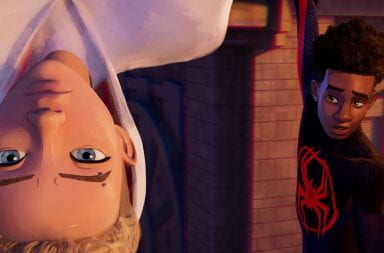“The Edge of Seventeen” has been employing a questionable marketing tactic in these past few weeks before its release: bragging about people comparing it to past films. I can understand wanting to be likened to a John Hughes movie, but when a trailer boasts that it’s been compared to “whatever your favorite teen comedy is,” it’s a mixed message. In so many words, the trailer is telling audiences ahead of time that “The Edge of Seventeen” is derivative of the countless teen flicks that preceded it, which is maybe the biggest issue movies in this genre face.
What’s even more puzzling about the marketing is how wrong it is. Comparisons are inevitable, because “The Edge of Seventeen” is a good teen movie and good teen movies tend to get categorized together. However, while it may operate on some familiar tropes, this film paves its own way by abandoning many of the genre’s cliches and crafting authentic characters.
Its premise feels familiar — Nadine (Hailee Steinfeld) is the standard high school outsider, not belonging to any particular social sphere. In the beginning, she explains her life’s hardships beyond not fitting in, including but not limited to, the untimely death of her father, her mother’s chronic depression and the enviable success of her older brother, Darian (Blake Jenner). Luckily for Nadine, she’s always had her best friend, Krista (Haley Lu Richardson), by her side. “The Edge of Seventeen” sets this friendship up and tears it down almost immediately by coupling up Krista and Darian, leaving Nadine to her own devices for the first time in her life.
The film stands out from a crowded genre and a tonally familiar set-up through its bluntly honest take on the coming-of-age story. It withholds from romanticizing the high school experience, but never completely condemns it either. Writer-director Kelly Fremon Craig recognizes that personal development, rather than school itself, is what makes this period of life so difficult for people.
This manifests itself in Nadine, one of the most well-written and best acted characters of the year. She occupies this space between being relatable and abhorable. Her sense of humor might be funny to some and hurtful to others, but she never means it to be offensive — she’s just struggling to communicate. Steinfeld captures that 17-year-old mix of faux self-deprecation and legitimate self-hate impeccably. Nadine isn’t exactly likeable for much of the movie, but it’s hard to fault her because of her relatability.
Credit is due to Craig’s writing for breathing this new life into the teen comedy. Though the ingredients are familiar, the execution feels more personal, as if Craig spilled her own high school experience onto the screen. The dialogue is a true accomplishment — funny enough to get a laugh but not too clever to feel beyond the teens saying it (looking at you, “Juno”). Even the more minor characters are memorable, especially Woody Harrelson as Mr. Bruner, the teacher that serves as Nadine’s unconventional life coach, and Hayden Szeto as Nadine’s classmate Erwin. Szeto knocks it out of the park, capturing the manic anxiety of being a teenage boy trying to woo a girl in his class.
“The Edge of Seventeen” may not be groundbreaking work, but it’s honest, engaging and most importantly, funny. It’s not afraid to laugh at its characters’ pain and have them laugh too. Craig has created a film that will be instantly relatable for anyone, regardless of how recent they were in high school. The setting is modern, but the message is timeless, something even Hughes struggled with.
7/10 stars


